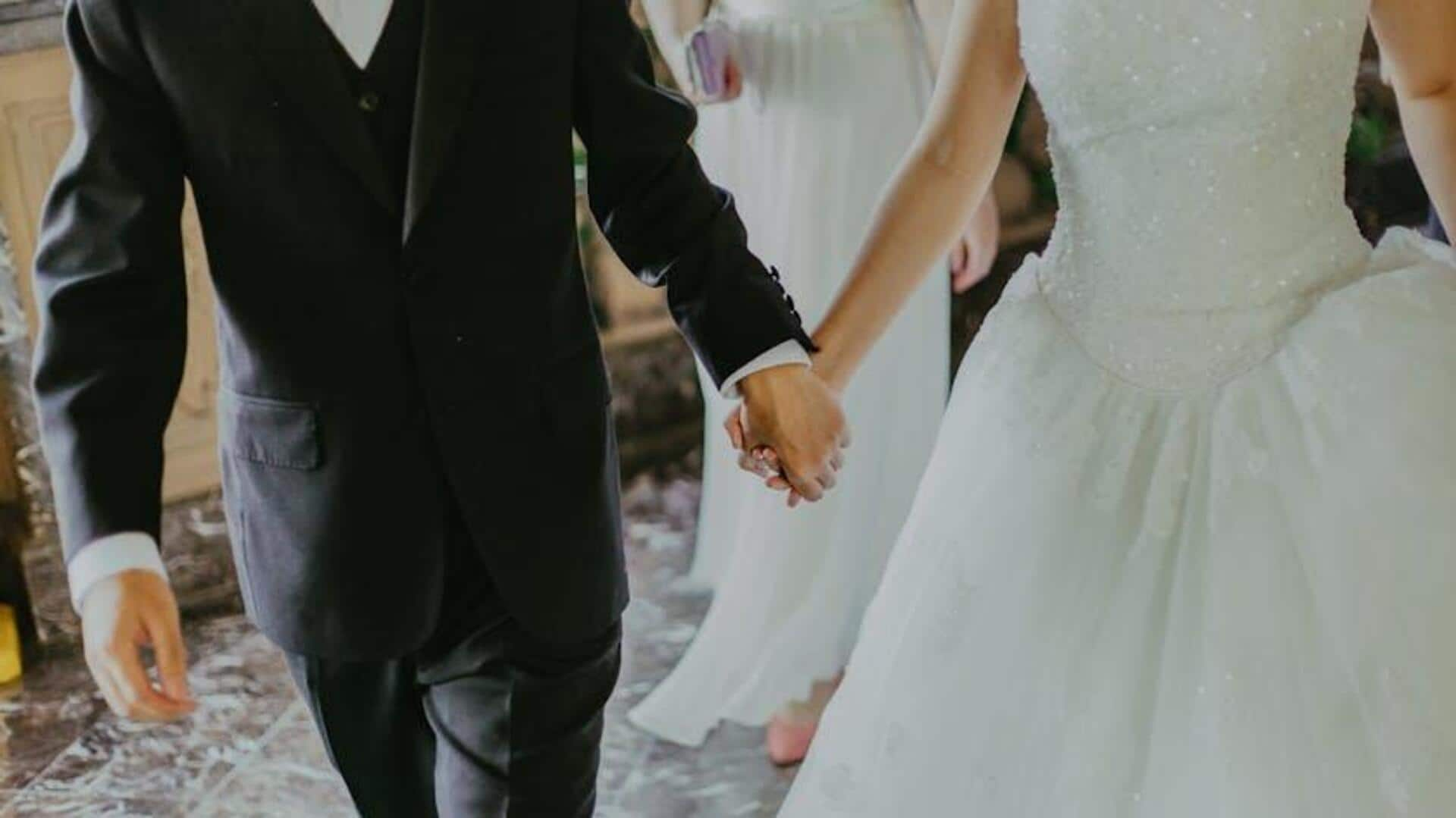
What makes Bulgarian weddings so unique?
What's the story
Bulgarian weddings are steeped in tradition, each ceremony reflecting the rich cultural heritage of the country. These rituals are not just about celebrating love but also about honoring customs that have been passed down through generations. From symbolic acts to vibrant celebrations, Bulgarian wedding ceremonies are a blend of joy and significance. Here are five unique Bulgarian wedding rituals that make these ceremonies special.
Community leader
The ritual of 'kmet'
In many Bulgarian villages, the community leader or kmet plays an important role in wedding ceremonies. The kmet is responsible for overseeing the proceedings and ensuring that traditions are followed. This includes blessings for prosperity and happiness for the couple. The presence of the kmet adds an element of authority and respect to the event, making it more than just a personal celebration.
Traditional dance
The 'Horo' dance
The horo is a traditional circle dance that forms an integral part of Bulgarian weddings. Dancers hold hands and move in a synchronized pattern, symbolizing unity and community spirit. The horo is usually performed at different points during the wedding day, bringing guests together in celebration. It is a lively dance that reflects Bulgarian culture's love for music and movement.
Shared meal
Breaking bread together
A significant part of Bulgarian wedding rituals is sharing bread as a symbol of unity and prosperity. The couple usually breaks bread together or shares it with their guests as a sign of their commitment to support each other in life. This act is often accompanied by blessings from family members or elders, emphasizing its importance within the ceremony.
Dowry tradition
Pazar negotiation
The pazar negotiation is an ancient custom where families discuss dowry arrangements before marriage. Although modern practices have evolved, some families still observe this tradition as part of their wedding preparations. The discussions involve various gifts or contributions from both sides, ensuring mutual agreement before proceeding with plans for the ceremony.
Godparent figure
Kum role
In Bulgarian weddings, the kum serves as a godparent figure to the couple. Chosen for their wisdom and guidance, the kum's responsibilities include overseeing key rituals and offering support throughout the marriage. This role is highly respected and signifies a deep bond between the kum and the couple, making it a pivotal part of the wedding ceremony.